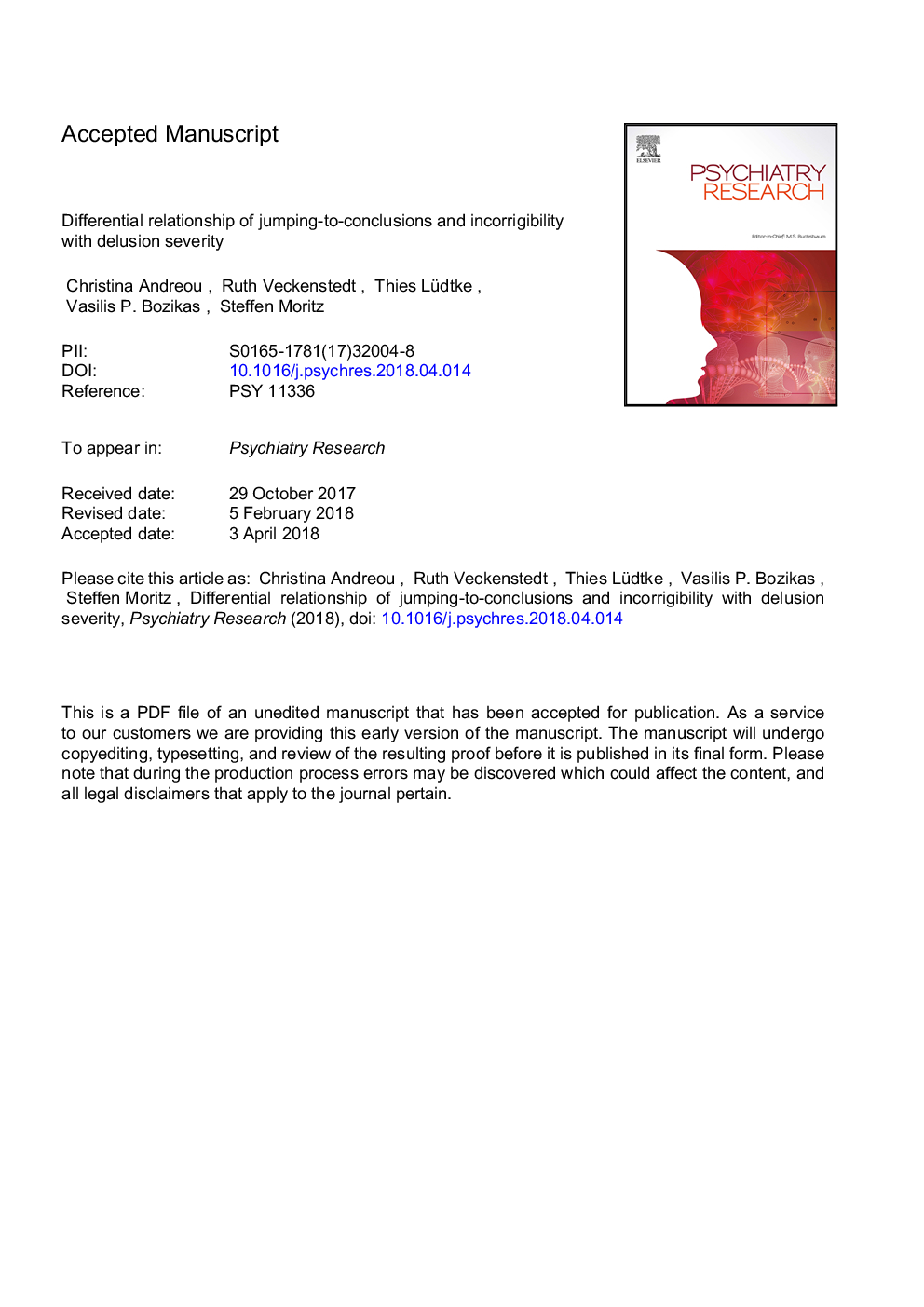ترجمه فارسی عنوان مقاله
رابطه دیفرانسیلی پریدن به نتیجه گیری و ناپایداری با شدت افسردگی
عنوان انگلیسی
Differential relationship of jumping-to-conclusions and incorrigibility with delusion severity
| کد مقاله | سال انتشار | تعداد صفحات مقاله انگلیسی |
|---|---|---|
| 117535 | 2018 | 23 صفحه PDF |
منبع

Publisher : Elsevier - Science Direct (الزویر - ساینس دایرکت)
Journal : Psychiatry Research, Volume 264, June 2018, Pages 297-301
ترجمه کلمات کلیدی
تعصب دلیل تعصب شناختی، عطف به نتایج، انعطاف پذیری ایمان، اختلال در برابر شواهد مخالفت، روانپریشی
کلمات کلیدی انگلیسی
Reasoning biases; Cognitive biases; Jumping-to-conclusions; Belief flexibility; Bias against disconfirmatory evidence; Psychosis;

